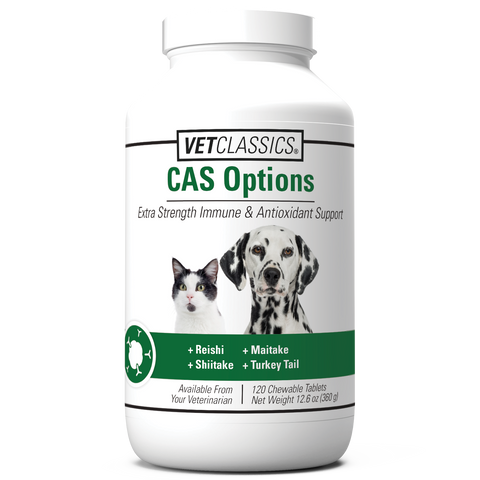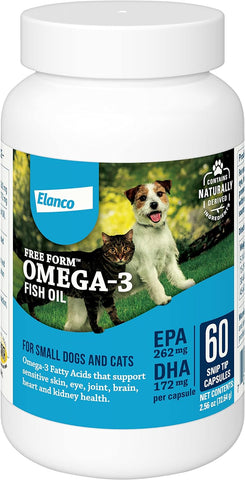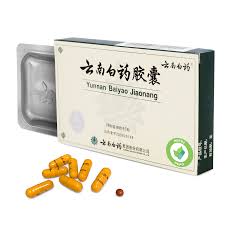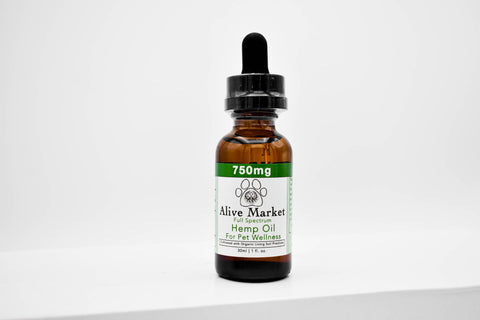As loving pet owners, we understand the heartache and concern that come with a diagnosis of canine or lymphoma in dogs. Lymphoma, therefore, is cancer of the lymphatic system. The lymphatic system includes the lymph nodes, lymphatic organs like the spleen and tonsils, and lymphatic vessels. This bodily system is a network of tissues and organs that help rid your pet's body of waste, toxins, and other unwanted materials.
The main function of the lymphatic lymph system is to transport lymph, a fluid containing infection-fighting white blood cells, throughout normal cells in the body. The easiest type to identify early on is cutaneous lymph nodes. When a dog has cutaneous lymphoma, it will develop red lumps on the skin where the cancer originated.
The journey of navigating treatment options can feel overwhelming, leaving us searching for ways to support our furry companions in their battle against this challenging disease. While conventional treatments for dog lymphoma like radiation therapy and chemotherapy may be recommended by veterinary oncologists, many pet owners are also turning to natural remedies to complement traditional therapies and improve their dog's quality of life.
In this comprehensive guide, we'll explore six at-home canine lymphoma treatments that harness the power of nature to support your dog's health and well-being. From dietary changes to herbal supplements, these natural remedies offer promising benefits for dogs battling lymphoma, helping to alleviate symptoms, boost immunity, and enhance overall vitality.
Each treatment discussed in this guide has been carefully selected based on its potential to complement conventional therapies and provide holistic support for dogs with lymphoma. Whether you're seeking relief for your dog's lymphoma's pain and inflammation, looking to stimulate their appetite and energy levels, or hoping to strengthen their immune system, you'll find valuable insights and practical advice to guide you on your journey.
While these natural treatments are not intended to replace medical intervention or professional veterinary care for dog b cell lymphoma, they can serve as valuable adjuncts to your dog's treatment plan, offering additional support and comfort during their battle with t cell lymphoma. As responsible pet owners, it's essential to work closely with your veterinarian to ensure that any new treatments or interventions are safe and appropriate for your dog's individual needs.
Join us as we delve into the world of natural canine lymphoma treatments, empowering you to make informed decisions and provide the best possible care for your beloved furry friend. Together, we can explore the potential of nature's remedies to this common cancer, enhance your dog's well-being and bring comfort and relief during this challenging time.
Raw Diet to Starve Cancer Cells
 |
Canine lymphoma, a prevalent form of cancer among dogs, shares similarities with various cancers in its affinity for environments abundant in sugars and processed carbohydrates. These dietary components provide fuel for cancer cells, promoting their growth and proliferation. However, by transitioning your dog to a raw diet, you can effectively mitigate their sugar intake, thereby altering the landscape within their body to be less conducive to cancer development and progression. A raw diet for dogs typically consists of uncooked meats, bones, fruits, and vegetables. By eliminating processed foods and carbohydrates from your dog's diet, you not only reduce their sugar consumption but also provide essential nutrients in their most natural form. This dietary approach not only supports overall health but also creates an inhospitable environment for cancer cells to thrive. Raw diets offer numerous benefits beyond sugar reduction. They are rich in essential nutrients, enzymes, and antioxidants that support immune function and overall well-being. Additionally, raw foods are easier for dogs to digest, promoting better nutrient absorption and gut health. These factors collectively contribute to a healthier internal environment that is less conducive to cancer growth and metastasis. Transitioning to a raw diet requires careful planning and consultation with a veterinarian or animal nutritionist to ensure your dog's nutritional needs are met. It's essential to provide a balanced diet that includes a variety of protein sources, healthy fats, and micronutrients. Monitoring your dog's health and consulting with professionals throughout the transition process is crucial for success. |
Understanding the Role of Sugar in Cancer Growth
Cancer cells have a voracious appetite for sugar, relying on glucose as their primary source of energy. When dogs consume diets high in sugars and carbohydrates, they inadvertently fuel the growth and proliferation of cancer cells, making it challenging many dogs to combat the disease effectively.
Benefits of a Raw Diet
A raw diet primarily consists of uncooked meats, bones, fruits, and vegetables, providing a natural and nutrient-rich alternative to processed commercial pet foods. By feeding your dog a raw diet, you can:
Reduce Sugar Intake: Raw diets are low in carbohydrates and sugars, helping to starve cancer cells and slow their growth.
Provide Essential Nutrients: Fresh, whole foods are rich in vitamins, minerals, and antioxidants, which support overall health and strengthen the immune system.
Improved Digestive Health: Raw diets are easier for dogs to digest, promoting gut health and optimizing nutrient absorption.
Sample Raw Diet Plan
Protein: Lean meats such as chicken, turkey, or beef, along with organ meats for added nutrients.
Vegetables: Dark, leafy greens like spinach and kale, as well as carrots, broccoli, and sweet potatoes for additional vitamins and minerals.
Fruits: Berries, apples, and bananas provide natural sweetness and antioxidants.
Supplements: Consider incorporating omega-3 fatty acids or probiotics to further support your dog's health.
Testimonials and Case Studies
Many pet owners have experienced positive results from transitioning their dogs to a raw diet as part of their cancer treatment plan. Testimonials and case studies can provide valuable insight into the potential benefits of this approach and inspire others to explore natural dietary options for their canine companions.
CBD Oil for Pain, Inflammation, Appetite, and Energy
Introduction to CBD Oil
Cannabidiol, or CBD, is a non-psychoactive substance that is present in cannabis plants. Pet owners can safely use CBD since, unlike THC (tetrahydrocannabinol), it does not provide a "high" feeling. Typically, hemp plants—which have high concentrations of CBD and very little THC—are used to extract CBD oil.
Benefits for Dogs with Lymphoma
CBD oil offers a range of potential benefits for dogs undergoing cancer treatment, including:
Pain Relief: CBD has analgesic properties that can help alleviate pain and discomfort associated with cancer, undergoing chemotherapy, and other treatments.
Reducing Inflammation: Inflammation is a common side effect of cancer and its treatments. CBD has anti-inflammatory effects, which may help reduce swelling and improve mobility in dogs with lymphoma.
Stimulating Appetite: Many dogs undergoing cancer treatment experience a loss of appetite, which can lead to weight loss and nutritional deficiencies. CBD may help stimulate appetite and encourage dogs to eat more regularly.
Boosting Energy Levels: Cancer and its treatments can cause fatigue and lethargy in dogs. CBD may help improve energy levels and promote a sense of vitality in dogs with lymphoma.
Dosage and Administration
When using CBD oil for dogs with lymphoma, it's essential to start with a low dose and gradually increase as needed. Consult with your veterinarian to determine the appropriate dosage based on your dog's size, weight, and individual needs. CBD oil can be administered directly into your dog's mouth or mixed with their food for easy consumption.
Precautions and Considerations
While CBD oil is generally considered safe for dogs, it's essential to use high-quality products from reputable manufacturers. Look for CBD oils that have been third-party tested for purity and potency. Additionally, monitor your dog for any adverse reactions, and discontinue use if any negative side effects occur.
Testimonials and User Experiences
Many pet owners have reported positive experiences with using CBD oil to support their dogs during cancer treatment. Testimonials and user experiences can provide valuable insights into the potential benefits of CBD oil and help guide other pet owners in their decision-making process.
CAS Options by VetClassics for Immunity
 |
Ensuring the resilience of the immune system holds paramount importance for dogs engaged in the arduous battle against lymphoma, a formidable adversary that challenges their health and vitality. The immune system serves as the body's frontline defense against threats, ranging from infectious agents to malignant T cells, playing a pivotal role in safeguarding overall well-being and vitality. Therefore, fortifying the immune system emerges as a cornerstone of comprehensive care for canine lymphoma patients, offering a potent means of bolstering their resilience and enhancing their capacity to combat the disease. In pursuit of this goal, CAS Options by VetClassics emerges as a beacon of hope and promise, offering a natural and multifaceted approach to immune support for dogs grappling with lymphoma. Crafted with care and precision, this innovative supplement harnesses the power of nature's remedies to provide comprehensive support for canine immune function, empowering dogs to better withstand the challenges posed by lymphoma and its treatment. At the heart of CAS Options lies a synergistic blend of premium-quality ingredients, carefully selected for their potent immunomodulatory properties and their ability to promote overall health and vitality in dogs. From potent antioxidants and immune-boosting botanicals to essential vitamins and minerals, each component of this thoughtfully crafted formula works in harmony to bolster immune function, enhance resilience, and support the body's natural defenses against cancer and other threats. One of the key benefits of CAS Options is its ability to modulate immune responses, striking a delicate balance between vigilance and tolerance to ensure optimal immune function. By promoting the production of vital immune cells, such as T cells, B cells, and natural killer cells, CAS Options strengthens the body's ability to identify and eliminate cancerous cells, while also mitigating the risk of autoimmune reactions and inflammatory disorders. |
Overview of CAS Options Supplement
CAS Options is a blend of immune-boosting ingredients, including:
Colostrum: Rich in antibodies and growth factors, colostrum helps strengthen the immune system and support overall health.
Arabinogalactan: A prebiotic fiber derived from the larch tree, arabinogalactan promotes the growth of beneficial bacteria in the gut, enhancing immune function.
Beta Glucan: Derived from yeast, beta glucan stimulates the immune system and helps modulate the body's response to viral infections and disease.
How CAS Options Supports Dogs with Lymphoma
CAS Options works to bolster the immune system in dogs with lymphoma, helping to make other dogs fight cancer further.
Enhance Immune Response: The immune-boosting ingredients in CAS Options help strengthen the body's natural defense mechanisms, enabling it to better fight off cancer cells and other pathogens.
Support Overall Health: By controlling inflammation and promoting immune function, CAS Options contributes to your dog's overall health and well-being, improving their resilience and vitality.
Administration and Dosage
CAS Options is typically available in powder or chewable tablet form, making it easy to administer to your dog. Follow the manufacturer's recommended dosage instructions based on your dog's size and weight. You can mix the powder into your dog's food or give them chewable tablets as a treat.
User Reviews and Testimonials
Many pet owners have reported positive experiences with using CAS Options to support their dogs' immune systems during cancer treatment. User reviews, clinical trials, and testimonials can provide valuable insights into the effectiveness of this supplement and help guide other pet owners in their decision-making process.
Consultation with Your Veterinarian
Before starting your dog on any new supplement regimen, it's essential to consult with your veterinary oncologist. They can provide personalized recommendations based on your dog's health status and treatment plan, ensuring that any supplements you introduce are safe and appropriate for your furry friend.
Omega 3 Pet Soft Gels
 |
Omega-3 fatty acids stand as essential components in the realm of canine nutrition, wielding profound influence over various aspects of health and vitality. These vital nutrients, found abundantly in sources such as fish oil, flaxseed oil, and algae, play a pivotal role in maintaining optimal physiological function and promoting overall well-being in dogs. From supporting cardiovascular health and cognitive function to alleviating inflammation and bolstering immune function, the benefits of omega-3 fatty acids are manifold and far-reaching. In the context of canine lymphoma, the importance of omega-3 fatty acids becomes even more pronounced, as these nutrients offer a natural and effective means of supporting your dog's health and potentially enhancing their response to treatment. Enter Omega 3 Pet Soft Gels, a premium supplement formulated to deliver concentrated doses of omega-3 fatty acids in a convenient and palatable form, ensuring optimal absorption and bioavailability for your canine companion. One of the key ways in which Omega 3 Pet Soft Gels exert their beneficial effects is through their potent anti-inflammatory properties. Inflammation plays a central role in the development and progression of cancer, including lymphoma, and can contribute to treatment resistance and disease recurrence. By supplementing your dog's diet with omega-3 fatty acids, you provide a powerful ally in the fight against inflammation, helping to mitigate its damaging effects and create an internal environment that is less conducive to cancer growth and metastasis. Moreover, omega-3 fatty acids have been shown to possess immunomodulatory effects, enhancing the body's immune response and potentially augmenting the efficacy of cancer treatments. By strengthening the immune system's ability to recognize and eliminate cancer cells, omega-3 fatty acids may play a supportive role in improving treatment outcomes and enhancing overall survival rates for canine lymphoma patients. |
Importance of Omega-3 Fatty Acids
Omega-3 fatty acids, including EPA (eicosapentaenoic acid) and DHA (docosahexaenoic acid), are known for their anti-inflammatory properties and numerous health benefits. These essential fatty acids cannot be produced by the body and must be obtained through diet or supplementation.
Benefits for Dogs with Lymphoma
Supplementing your dog's diet with Omega-3 fatty acids can offer several potential benefits, including:
Reducing Inflammation: Omega-3 fatty acids help modulate the body's inflammatory response, reducing inflammation and alleviating discomfort associated with cancer and its treatments.
Supporting Heart Health: Omega-3 fatty acids have been shown to support cardiovascular health in dogs, reducing the risk of heart disease and improving circulation.
Enhancing Immune Function: A healthy immune system is essential for dogs battling lymphoma. Omega-3 fatty acids help support immune function, enabling normal T cells in the lymph nodes of your dog's or pet's body to better fight off infections and disease.
Omega 3 Pet Soft Gels for Canine Lymphoma
Omega 3 Pet Soft Gels are specially formulated for dogs and provide a convenient way to supplement your dog's diet, especially senior dogs, with essential Omega-3 fatty acids. These soft gels most dogs use are typically made from fish oil, which is rich in EPA and DHA, the most beneficial forms of Omega-3 fatty acids.
Dosage and Administration
The recommended dosage of Omega 3 Pet Soft Gels will vary depending on veterinary oncologists, your dog's size, weight, and individual needs. Follow the manufacturer's instructions for dosing, and consider consulting with your veterinary oncologist for personalized recommendations.
User Experiences and Testimonials
Many pet owners have reported positive experiences with using Omega-3 fatty acid supplements to support their dogs' health during cancer treatment. User testimonials can provide valuable insights into the potential benefits of Omega 3 Pet Soft Gels and help guide other pet owners in their decision-making process.
Omega-3 fatty acids are a valuable addition to your dog's treatment plan for lymphoma, offering numerous potential benefits for their health and well-being. By incorporating Omega 3 Pet Soft Gels into your dog's daily routine, you can provide essential nutrients that support their immune system, fight cancer, reduce inflammation, and promote overall vitality.
Probiotics: Supporting Gut Health in Dogs with Lymphoma
 |
Ensuring the maintenance of a healthy gut microbiome is paramount for dogs navigating the challenges of cancer treatment, particularly those undergoing therapy for lymphoma. The gut microbiome, a diverse ecosystem of microorganisms inhabiting the gastrointestinal tract, holds significant sway over numerous aspects of a dog's health, including immune function, digestion, nutrient absorption, and overall well-being. As such, nurturing a balanced and thriving gut microbiome is key to bolstering your dog's resilience and vitality during their cancer journey. Amidst the array of strategies available to support canine gut health, probiotics emerge as a natural and potent ally in promoting microbial balance and fortifying the gut environment. Probiotics, which consist of beneficial bacteria and yeasts that confer health benefits when consumed, offer a targeted approach to nurturing a flourishing gut microbiome and enhancing the body's ability to withstand the rigors of cancer treatment. By supplementing your dog's diet with probiotics, you provide a steady influx of beneficial microbes that can help restore equilibrium within the gut ecosystem. These probiotic organisms work synergistically to outcompete harmful pathogens, bolster the integrity of the intestinal lining, and modulate immune responses, thereby fostering an environment that is conducive to optimal health and vitality. |
Understanding the Role of Probiotics
Probiotics are beneficial bacteria that inhabit the digestive tract and play a key role in maintaining gut health. These friendly microbes help break down food, absorb nutrients, and protect T cell against harmful pathogens. In dogs with lymphoma, probiotics can help restore balance to the gut microbiome, which may be disrupted by aggressive cancer and treatments such as some chemotherapy drugs.
Benefits of Probiotics for Dogs with Lymphoma
Supplementing your dog's diet with probiotics can offer several potential benefits, including:
Supporting Digestive Health: Probiotics help regulate digestion and promote the growth of beneficial bacteria in the gut, reducing the risk of digestive issues such as diarrhea and constipation.
Boosting Immune Function: A significant portion of the immune system is located in the gut, making a healthy microbiome essential for immune function. Probiotics can help strengthen the immune system and enhance your dog's ability to fight off infections and disease.
Reducing Inflammation: Imbalances in the gut microbiome can lead to inflammation, which may exacerbate symptoms of lymphoma. Probiotics help maintain a healthy balance of bacteria in the gut, reducing inflammation and promoting overall well-being.
Choosing the Right Probiotic
When selecting a probiotic for your dog, it's essential to choose a high-quality product specifically formulated for canine use. Look for probiotics that contain a diverse range of beneficial bacteria strains, such as Lactobacillus and Bifidobacterium species. Furthermore, opt for probiotics that are shelf-stable and have undergone third-party testing for purity and potency.
Administration and Dosage
Probiotics for dogs are typically available in powder or chewable tablet form, making them easy to administer. Follow the manufacturer's recommended dosage instructions based on your dog's size and weight. Probiotics can be mixed into your dog's food or given as a treat.
User Experiences and Testimonials
Many pet owners have reported positive experiences with using probiotics to support their dogs' gut health during cancer treatment. User testimonials can provide valuable insights into the potential benefits of probiotics and help guide other pet owners in their decision-making process.
Probiotics offer a natural and effective way to support gut health in dogs with lymphoma, promoting digestion, boosting immune function, and reducing inflammation. By incorporating probiotics into your dog's daily routine, you can help maintain a healthy gut microbiome and enhance their overall well-being during cancer treatment.
Yunnan Baiyao: Traditional Chinese Medicine for Canine Lymphoma
 |
Yunnan Baiyao, a revered traditional Chinese herbal remedy with roots dating back centuries, has garnered widespread recognition for its remarkable healing properties and its ability to bolster overall health. Its rich history of use in traditional Chinese medicine speaks volumes about its efficacy and versatility in addressing a myriad of health concerns. In modern times, Yunnan Baiyao has experienced a resurgence in popularity as an adjunctive therapy for various ailments, both in humans and animals, earning accolades for its potential therapeutic benefits in conditions ranging from cancer to liver disease. In the realm of veterinary medicine, particularly in the context holistic treatment of canine lymphoma, Yunnan Baiyao emerges as a beacon of hope and promise, offering a natural and holistic approach to cancer support and overall well-being for our beloved canine companions. Unlike conventional pharmaceutical interventions, or chemotherapy protocols which may carry the risk of adverse effects and often target symptoms rather than the underlying causes of disease, Yunnan Baiyao presents a gentler, more nuanced approach to healing. At the heart of Yunnan Baiyao's efficacy lies its unique blend of potent herbal ingredients, carefully selected and formulated to synergistically promote health and vitality. These herbs, which may include yunnanensis, sanqi (Panax notoginseng), and others, work in harmony to restore balance within the body, strengthen the immune system, and enhance the body's innate healing mechanisms. Through its multifaceted action, Yunnan Baiyao not only addresses the symptoms of canine lymphoma but also targets the root causes of the disease, striving to create an internal environment that is inhospitable to cancer cells and supportive of overall health and well-being. Furthermore, Yunnan Baiyao's holistic approach to healing extends beyond its direct effects on cancer cells. It encompasses a broader perspective that considers the interconnectedness of body, mind, and spirit, recognizing the importance of nurturing these elements to achieve optimal health outcomes. As such, Yunnan Baiyao not only seeks to alleviate physical symptoms but also aims to promote emotional well-being and enhance the quality of life for dogs battling lymphoma and other debilitating conditions. |
Introduction to Yunnan Baiyao
Yunnan Baiyao, also known as Yunnan Paiyao, translates to "Yunnan White Medicine." It originated in the Yunnan province of China and is composed of several herbal ingredients, including:
Sanqi (Panax notoginseng): Known for its blood-stopping properties, Sanqi helps promote circulation of blood vessels and reduce bleeding.
Dang Gui (Angelica sinensis): Dang Gui is traditionally used to nourish the white blood cell and promote healing.
Chuan Shan Jia (Dipsacus asper): This herb is believed to invigorate blood circulation and reduce swelling and pain.
How Yunnan Baiyao Supports Dogs with Lymphoma
Yunnan Baiyao is believed to have several potential benefits over chemotherapy treatment for dogs with lymphoma, including:
Reducing Tumor Growth: Some studies suggest that the herbal ingredients in Yunnan Baiyao may have anti-cancer properties, helping to kill cancer cells and inhibit tumor growth and spread.
Promoting Circulation: Yunnan Baiyao is known for its ability to promote blood circulation and reduce bleeding swollen lymph nodes, which may be beneficial for dogs with lymphoma experiencing symptoms such as bruising or bleeding tumors.
Supporting Immune Function: Traditional Chinese medicine views Yunnan Baiyao as a tonic that helps strengthen the body's overall health and vitality, which can support the immune system in its fight against cancer.
Administration and Dosage
Yunnan Baiyao is typically available in powder or capsule form and can be administered orally to dogs. The recommended dosage will vary depending on your dog's size, weight, and individual needs. It's essential to follow the manufacturer's instructions or consult with a veterinarian to determine the appropriate dosage for your furry friend.
User Experiences and Testimonials
Many pet owners have reported positive experiences with using Yunnan Baiyao to support their dogs during cancer treatment. While scientific evidence supporting its efficacy in the treating cancer in some cancer patients is limited, user testimonials can provide valuable insights into the potential benefits of this traditional herbal remedy for cancer patient.
Yunnan Baiyao offers a natural and holistic approach to supporting dogs with lymphoma, providing potential benefits such as reducing tumor growth, promoting circulation, and supporting immune function. While more research is needed to fully understand its efficacy in treating canine cancer alone, many pet owners have found it to be a valuable complement to conventional treatments.
Summary and Final Thoughts
In this comprehensive guide to canine cancers, we've explored six natural treatments for canine lymphoma, each offering unique benefits and potential advantages for supporting your dog's health and well-being during cancer treatment. From dietary interventions to herbal supplements, these natural remedies provide holistic support that complements conventional therapies and enhances your dog's quality of life.
Key Takeaways
Raw Diet: A raw diet can help starve cancer cells by reducing sugar intake and providing essential nutrients for overall health.
CBD Oil: CBD oil offers potential benefits for managing pain, inflammation, appetite, and energy levels in dogs with lymphoma.
CAS Options by Vetclassics: This immune-boosting supplement contains colostrum, arabinogalactan, and beta-glucan to support immune function in dogs with lymphoma.
Omega 3 Pet Soft Gels: Omega-3 fatty acids help reduce inflammation, support heart health, and enhance immune function in dogs undergoing cancer treatment.
Probiotics: Probiotics promote gut health, boost immune function, and reduce inflammation, making them valuable supplements for dogs with lymphoma.
Yunnan Baiyao: This traditional Chinese herbal remedy may help reduce tumor growth, promote circulation, and support immune function in dogs with lymphoma.
Incorporating Natural Treatments into Your Dog's Treatment Plan
When considering natural treatments for canine lymphoma, it's essential to work closely with your veterinarian to ensure they are safe and appropriate for your dog's individual needs. These remedies should complement, not replace, conventional treatments prescribed by your vet.
Before introducing most dogs to any new treatment or supplement, thoroughly research the product, consult with your veterinarian, and monitor your dog closely for clinical signs of any adverse reactions or changes in condition.
Remember that every other dog's or pet's health prognosis is unique, and what works well for one may not be suitable for another. Tailor your dog's treatment plan based on their specific health status, preferences, and response to therapy.
Conclusion
While canine lymphoma can be a challenging diagnosis to navigate, incorporating natural treatments into your dog's treatment plan can provide additional support and comfort during this difficult time. By exploring these holistic remedies and working closely with your veterinarian, you can optimize your dog's care and enhance their quality of life as they undergo cancer treatment.
Together, we can empower pet owners to make informed decisions and provide the best possible care for their beloved furry companions. Let's continue to explore the potential of natural remedies for supporting dogs with lymphoma and strive for better outcomes and improved well-being for our canine friends.


